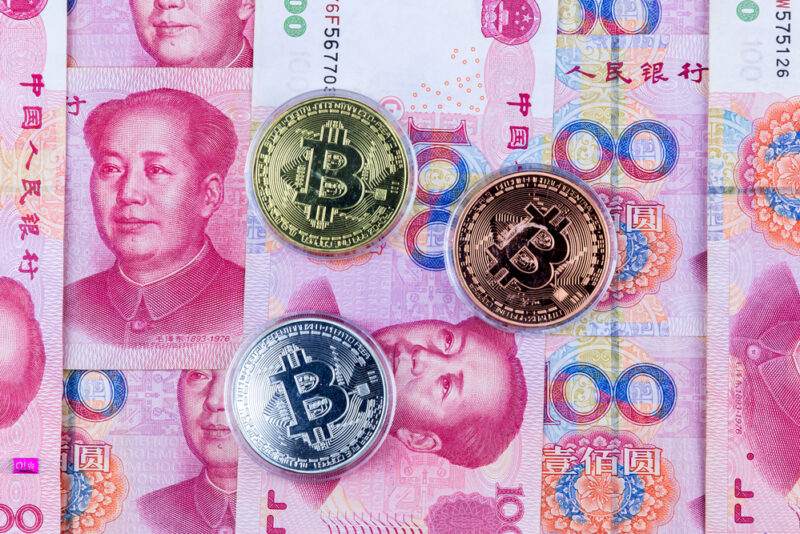China has gotten serious about crypto, and on Friday, the central bank of the country announced to the world that it is banning all cryptocurrency, including Bitcoin, and any crypto-related transaction would now be illegal.
The released statement from the People’s Bank of China said this:
“There are legal risks for individuals and organizations participating in virtual currency and trading activities.”
The announcement further explained that any Chinese national who is working abroad would also be subject to this law, and if suspected of using or trading cryptocurrency, they, too, would be “investigated according to the law.
The News Created a Crypto Crisis
As we might imagine, as soon as the news was released, both Bitcoin and Ethereum saw a huge drop in price. This isn’t the first time, however, that the price of crypto has been affected by China.
This latest announcement follows the news that the Chinese Communist Party had banned crypto mining and released a warning to banks in the country to not participate in crypto transactions.
Why Did China Make This Move?
This new crackdown on crypto comes thanks to the fact that real estate developers in China are looking at a liquidity crunch, which is risky for the rest of the Chinese economy.
Approximately a third of the Chinese GDP is represented by real estate, and developers have started to borrow a lot of money in order to get through this trying time. However, in the past couple of years, the Chinese Communist Party has walked away from the real estate development industry after Chinese President Xi Jinping said, “houses are for living in, not for speculation.”
President Xi might be onto something, though, because the previous migration to bigger cities from the Chinese countryside has slowed up, and birthrates in the country are falling. This has led to a lot of home that are now sitting empty or totally unfinished. In fact, there is speculation from The Rhodium Group, that these empty or incomplete homes could house as many as 90 million individuals.
Additionally, local governments in China have also slowed down land sales, and when compared to the same time last year, sales are down approximately 90%. Keep in mind, in China, the profit from land sales goes to the local governments, and if they don’t get this money, there will certainly be issues with paying bag the great debt that these governments have issued.
Just this past August, Beijing tried to rein all of this in by forcing real estate developers to lower the debt ratio against the assets they hold. Typically, real estate companies sell debt in order to both market and build development, and then rely on the sales of that development to pay down the debts.
Evergrande, one of these Chinese real estate development companies, have been caught in the middle of the demands from the Chinese Communist Party.
Even before these demands, however, the company was already in a bit of trouble. As the sales of property have slowed down, Evergrande has not been able to get the cash it needs to finish up its projects. Since the company couldn’t finish the projects, it wasn’t generating any cash, so it couldn’t pay the principal nor interest on its debts. On top of this, the Chinese government has stopped Evergrande from issuing any new bonds to pay its debt. So, the company is inching closer to default each and every day.
All of this leads us to where the Chinese crypto crackdown begins. This government has had a restriction on the flow of capital from outside of China, preferring that investors keep it within the Chinese economy.
Cryptocurrency is challenging to control, of course, as they are anonymous and can easily be converted into other types of currency. Part of the reason China is also cracking down on crypto is because it is also commonly used in illegal transactions. Perhaps, this is the real reason, and the rest is simply a convenient excuse.
WeInvests is a financial portal-based research agency. We do our utmost best to offer reliable and unbiased information about crypto, finance, trading and stocks. However, we do not offer financial advice and users should always carry out their own research.
Read More













